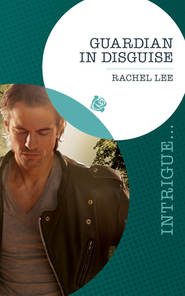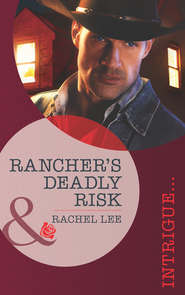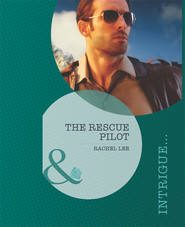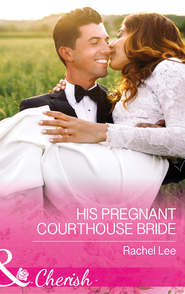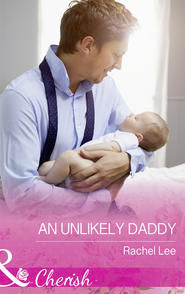По всем вопросам обращайтесь на: info@litportal.ru
(©) 2003-2024.
✖
The Final Mission
Автор
Год написания книги
2018
Настройки чтения
Размер шрифта
Высота строк
Поля
A flicker of humor danced across his face. “Those two kids usually eat like one. And I made a bit extra because I don’t know your appetite.”
“Not usually good. But I enjoyed breakfast. So … do you have a lot of work to do? Ranching must be loaded with it.”
“It is. Less at the moment than other times of year, but yeah, I’ve got plenty to do. After you finish your coffee, I’ll introduce you to the rest of the family.”
“The rest?”
“The horses, of course. And a handful of dogs who seem to prefer equine company to human.”
“I can sympathize with the dogs.”
“Me, too, a lot of the time.”
A smile flickered across his face again, and brief though it was, it lit him from within. She couldn’t imagine the world he lived in, the way he must view things compared to her, but whatever his ranch life was like, sorrows aside, it seemed to have given him some kind of ineffable … understanding? Peace?
Crazy thinking, she told herself. Last night she had seen him furious. This was no Zen monk living above it all or beyond the reach of life’s misfortunes. Yet this morning he seemed quiet within himself, a state of mind she could only envy.
Maybe it was just the early hour.
He startled her by looking her over suddenly, as if measuring her. Before she could instinctively draw back, he said, “Do you have any jeans with you?”
“Yes.”
“And socks. A good pair?”
“I’m a jogger. I buy good socks.”
“Well, go get on some jeans and socks, then. I’ll find you a pair of boots, and then we’ll go out to meet the herd. Shoe size?”
“Nine.”
He nodded. “I can do that.”
So she went back upstairs and pawed through her suitcase, pulling out some faded jeans, a sweatshirt and a windbreaker she’d stuffed into a corner of her suitcase at the last minute. She didn’t think her long wool coat would be suitable for meeting his horses. She almost laughed at the thought.
When she came back down, he had a pair of rubber boots ready for her. “This way if you step in something we can hose you off.”
She hadn’t thought about that part, but she wasn’t squeamish by nature. If she had been, she wouldn’t have survived her job for long.
They exited the house through the mudroom into a crisp morning and warm light from the still-rising sun. He paused, using his arm to point things out.
“Arena and barn over there. I don’t usually need to stable the horses unless there’s a problem of some kind.”
She looked at the buildings, the barn an identifiable shape with a gambrel roof, the arena obviously the big round, weathered building. She glanced toward the pasture where she could see horses by the dozens if not a hundred. “How could you stable so many anyway?”
“They don’t need stabling. But a good number of them will be sold next month. Too bad you can’t be here for the shindig.”
“What kind of shindig?”
“I’ll probably have about forty buyers here, maybe more. They’ll come in RVs mostly, and I’ve even got power hookups for them out thataway.” He pointed. “This place is going to look like a campground on steroids, or even some kind of fair.”
She looked around trying to imagine it. There were two huge corrals, neither one of them occupied by a horse at present. All the horses were farther away, in what she assumed was a pasture.
“Is the arena for the buyers?”
“Yup, and for training. We put the horses through their paces one at a time in the arena, and interested folks can watch and come down to check on them more closely. Then we spend most of the winter on training.”
“How many will you sell?”
A quiet laugh escaped him. “That’s always the question, isn’t it? I hold back my youngsters unless I’m sure they’ll be handled properly.”
“What do you mean?”
“You can cut five years off a horse’s working life by overworking her during the first four or five years. I don’t like that.”
She looked at him, feeling a twinge of real respect. “That makes it harder on you, doesn’t it? All those extra years of looking after them?”
“Well, I won’t have to hold back many. I know the folks I invite to my sale, and most of them agree with my philosophy. I’m not saying you can’t work a young horse, but overwork is another matter. So I choose to let them go to buyers I can trust. It makes them healthier. It makes them better and happier. I don’t just own them, you know. I’m a steward.”
She nodded, liking his attitude. “So exactly how does this work? You keep the babies until they’re grown enough? You train them?”
He shook his head. “I keep a certain number for myself but I sell a lot of my mares while they’re in foal for the second or third time. That means they’re pregnant. But I make darn sure I know who I’m selling them to. Most folks want a good mare already in foal because they can get an idea of the quality of the foal from the mare, and because the mare is a proven breeder. It’s all about quality, and folks who respect quality are going to take good care of that foal.”
“Okay.” They were walking toward the pasture fence now, past the corrals. The horses began to take note of them, and there was a slow but steady gathering in the general direction of the fence where a huge wooden box sat just outside. “And the rest?”
“I keep most of my geldings to train, some to show. I can sell them to stables, to rodeos, to ranches, places where they don’t want to do the hard work of initial training. It takes a lot of work to train these horses to be the kind of animal you want. And of course I keep my best mares for breeding, and a handful of youngsters for showing. Have to keep my bloodline in good condition.”
“It all sounds complicated.” She glanced his way and saw his face, shadowed by the brim of his cowboy hat. He smiled faintly as he looked out toward the horses.
“Only if you aren’t familiar with it.”
“Still, it sounds like you have to weigh a lot of things.”
“I suppose so. But I’ve been weighing them for so long it kind of happens in the background.”
She looked out toward the pasture again, at the coalescing herd. “So most of them will be gone in a month?”
“That’s always the question. The word I’m most focused on is enough.” He let out a piercing whistle, and most of the horses heading their way picked up their pace. Like moles popping out of the ground, three black-and-white dogs appeared, running along with them. Border collies, she thought.
When they reached the fence, he lifted the lid on the big wooden box and began to pull out carrots. “Help yourself. They love them.”
She wasn’t ready to do that. She hung back a bit, aware that she was being regarded suspiciously by dozens of equine eyes even as they edged toward Dom for their treats. He seemed to enjoy handing out the carrots, and even gave one to each of the dogs.
“Dogs eat carrots?” The notion amazed her. She’d never had a dog, and mentally she associated them with bowls of dog food and scraps from the table. Which, she decided, made it rather silly of her to be surprised that they liked raw carrots.
“Dogs’ll eat most anything. They even to try to swipe watermelon when I give it to the boys.”
Watching, Courtney noticed that not all the horses came to the fence. Plenty hung back, as if interested but not hungry. Many of the hangers-back were still young-looking, coltish, and they seemed to hug the sides of mares.






